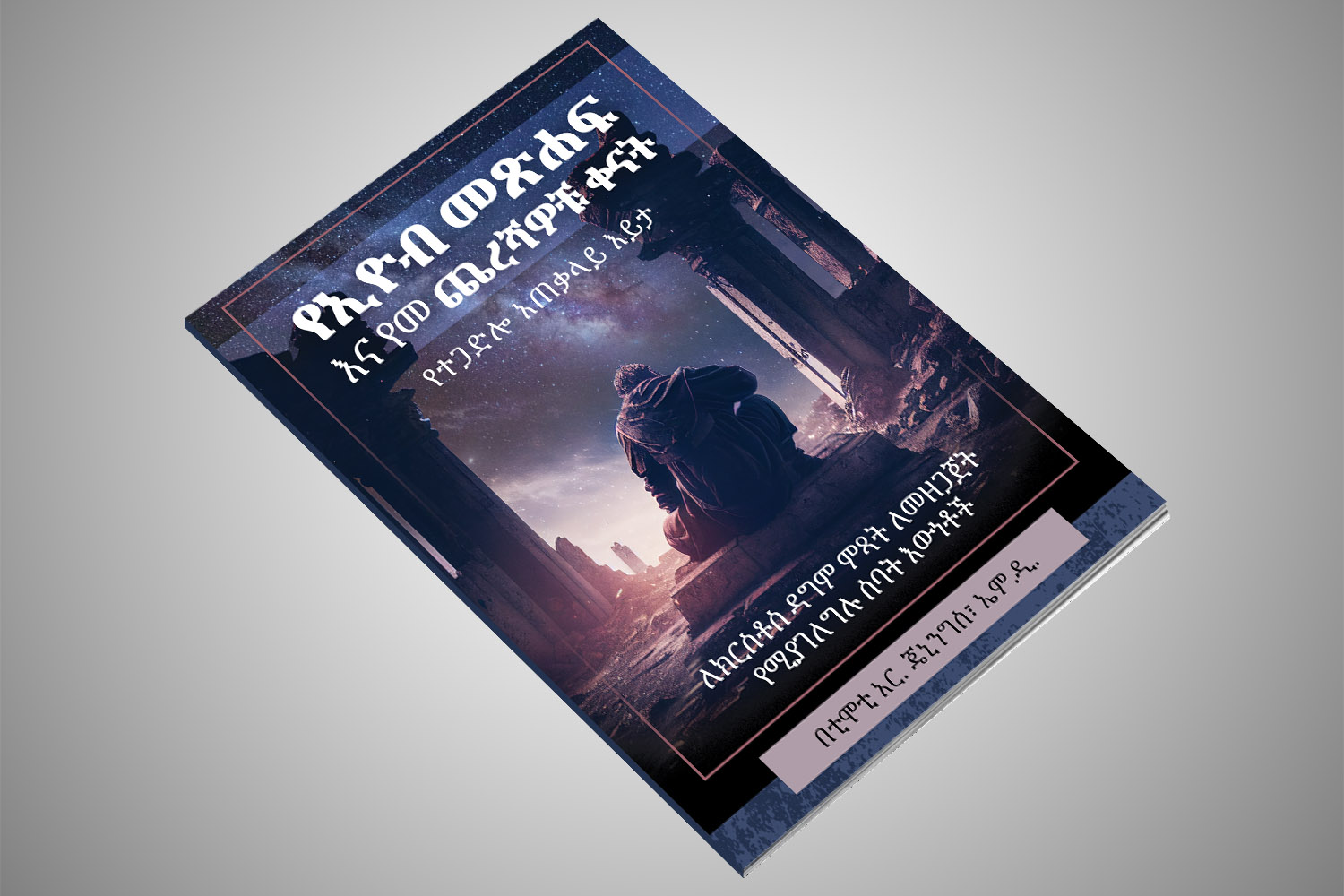Near the end of Jesus’ earthly ministry, He told a story that for many has been difficult to understand. We find it recorded in Luke 16:19–31:
There was a rich man who was dressed in purple and fine linen and lived in luxury every day. At his gate was laid a beggar named Lazarus, covered with sores and longing to eat what fell from the rich man’s table. Even the dogs came and licked his sores.
The time came when the beggar died and the angels carried him to Abraham’s side. The rich man also died and was buried. In hell, where he was in torment, he looked up and saw Abraham far away, with Lazarus by his side. So he called to him, “Father Abraham, have pity on me and send Lazarus to dip the tip of his finger in water and cool my tongue, because I am in agony in this fire.”
But Abraham replied, “Son, remember that in your lifetime you received your good things, while Lazarus received bad things, but now he is comforted here and you are in agony. And besides all this, between us and you a great chasm has been fixed, so that those who want to go from here to you cannot, nor can anyone cross over from there to us.”
He answered, “Then I beg you, father, send Lazarus to my father’s house, for I have five brothers. Let him warn them, so that they will not also come to this place of torment.”
Abraham replied, “They have Moses and the Prophets; let them listen to them.”
“No, father Abraham,” he said, “but if someone from the dead goes to them, they will repent.”
He said to him, “If they do not listen to Moses and the Prophets, they will not be convinced even if someone rises from the dead” (NIV84).
The question has been whether this story is literal or is a parable. That is, is Jesus describing reality, how things actually work in God’s universe, or is Jesus using a parable—a story that is not historical, factual, or literal—to bring out underlying eternal truths? Whether the story is literal or a parable has been debated for centuries and continues to be a point of disagreement within Christianity.
Before we examine the evidence that will help us answer this question, it is important to realize that our conclusion about this passage does not determine our state of salvation; our answer to this question is not a good indicator of our faith or relationship with God. Every human being is finite, with limited knowledge and understanding. Every one of us has things to learn and unlearn. When Jesus appears and we are changed in the twinkling of an eye and are soaring into the clouds to meet our Savior, there will not be one human being who has a perfect and complete understanding of every detail of Scripture. We will all still have much to learn—and unlearn.
What the saved do have are new hearts and right spirits. Fear and selfishness will have been replaced with love and trust in God, love for others, and a love for truth. The saved will have hearts and minds that long to grow in truth, not minds that know all truth! The saved will be humble, teachable, and eager to be corrected and to advance in the truth, grow in truth, and discover more truth. But the lost “perish because they refused to love the truth and so be saved” (2 Thessalonians 2:10 NIV84). The lost are not lost because they didn’t hear the truth, or didn’t comprehend some doctrine or fact, but because their hearts were closed to new truth. Rather than advancing in the truth, the lost cling to their creeds, fundamental beliefs, doctrines, and traditions and refuse to be corrected; they will not grow when new truth is presented. Their hearts and minds are closed.
The point here is that two righteous people can understand various passages of Scripture differently. And even with careful study, they may still not agree—but that doesn’t necessarily mean that one is saved and one is lost. It may only indicate they are in different places in their journey as they follow the truth in their lives. One may comprehend details or insights that the other hasn’t yet recognized, yet both have hearts that love to grow in the truth.
When studying the Bible, the most critical point to remember is the primary purpose of Scripture: to reveal God to us. Likewise, the primary purpose of every doctrine is to reveal to us truth about God. Every single doctrine rightly understood and applied will connect directly back to God and reveal to us truths about His character, methods, design laws for life, and government. These doctrines function like spokes on a wheel, each one connected to and leading back to the central hub: Jesus Christ, who is the express image of God.
But sadly, all too often, our doctrines become stand-alone litmus tests of orthodoxy that we prove with a series of proof texts and then apply to behavior, using this “doctrinal standard” to test the faithfulness of others. Such an approach turns the focus away from God onto self—and worse, such an approach mispresents God. This is exactly how the Jews in Christ’s day approached Bible study, not as a book designed to reveal the truth about God, but as a code book of deeds to be done and sins to be shunned.
But Jesus told them plainly:
You diligently study the Scriptures because you think that by them you possess eternal life. These are the Scriptures that testify about me, yet you refuse to come to me to have life (John 5:39–40 NIV84).
The Bible’s primary purpose is to lead us back to a knowledge of God. Remember, life eternal is knowing God (John 17:3). We have life only if we have the Son (1 John 5:12); life is not found in having the right list of doctrinal beliefs.
If we have the correct doctrinal teaching about some subject, say the method of baptism or Sabbath day, but that doctrine is not connected to the truth about God, then that doctrine will be used to mislead and obstruct the plan of salvation. The correct doctrine disconnected from the truth about God can lead people away from God.
Jesus said:
Woe to you, teachers of the law and Pharisees, you hypocrites! You travel over land and sea to win a single convert, and when he becomes one, you make him twice as much a son of hell as you are (Matthew 23:15 NIV84).
Did these Jewish lawyers and theologians have the wrong Sabbath day, eat the wrong foods, have the wrong religious festivals, tithe the wrong percentage, or worship in the wrong sanctuary? No! But what did they have wrong? They failed to connect the doctrines to the truth about God and, instead, set up the doctrines as though they are like human laws, imposed rules requiring legal accounting and management and behavioral monitoring.
So, as we consider this story, we need to keep in mind that our Christian friends in other traditions may very well interpret it differently than us, and we may be quite correct in disagreeing with their interpretation, but that doesn’t mean they don’t know God—or that we do. Our love and knowledge of God is unfolding, and they, like us, may hold beliefs that have never been fully examined and traced through the entire record of Scripture and linked back to God.
And this is the most important question when considering all of these passages: What do the various interpretations say about God?
Unpacking the Tale
If we believe the story of the rich man and Lazarus is literal, describing reality as it actually is in God’s universe, what would that mean and what would that say about God?
- If this describes a reality in which the dead are conscious, then those in heaven and hell can see and communicate with each other. And if that is how heaven functions, what would the experience be like for the various saved who have loved ones crying out to them from the torments of hell for all eternity? Would King David be filled with joy and peace if he were to see and hear his son Absalom crying out to him from the torments of hell for all eternity?
- What would it say about the saved if they could be in heaven and watch any living being—animal, human, or angel—being tormented and crying out in pain and look upon that and feel satisfied, feel good, and say, “Yes, that is right; I’m glad to see it”?
- And if this is literally the way things are in God’s universe, that some are tormented in the fires of hell for all eternity and the righteous, for all eternity, watch and hear their screams of pain, what kind of place is that for the righteous? Would you be happy there? Wouldn’t such an experience destroy tenderness of heart and cause either demoralization or hardness and callousness of heart?
- And what kind of God would God be if He created a universe in which people are born into a world they did not choose, born into sinfulness that they did not choose, experience child abuse they did not choose, and then die in adolescence before they ever accept Jesus as their Savior, yet God sends them to hell to be tormented for all eternity—a short life in sin with no opportunity for salvation followed by eternal torment. What kind of being would God be if this were true?
So, does taking this story literally say anything good about God?
Why would people believe this is a literal story rather than a parable?
- Preconceived ideas—if one already believes that souls are immortal and can never die, and the righteous go to heaven in some conscious way at death, then this story seems to describe that process, so it doesn’t trigger cognitive dissonance, it doesn’t make one pause and question; it is read literally because it seems to fit an underlying belief.
- Further, the Bible teaches that all humans have a fear of death (Hebrews 2:15), and the belief that we are immortal in some way reduces that fear. In other words, people don’t want to believe they can die; they want to believe they will live forever no matter what. This story, taken literally, supports that belief and helps them ward off the fear of death. However, the only true solution to death and our fear of it is Jesus Christ, who “shared in [our] humanity so that by his death he might destroy him who holds the power of death—that is, the devil—and free those who all their lives were held in slavery by their fear of death” (Hebrews 2:14, 15 NIV84).
And the details of the story themselves reveal it is not to be taken literally. For instance, the story describes disembodied souls or spirits, yet the rich man asks Lazarus to dip his “finger” in water to cool his “tongue”—both of these are body parts. Spirits don’t have fingers or tongues!
Why did Jesus tell this story? What truth was He trying to get across? I think there were several truths Jesus wanted to convey to the people of that day. As I list them, consider if these were falsehoods that the Jews struggled with, and which this story exposed, but also consider whether we need to remember these same truths today:
- Health and wealth are not good indicators of salvation, righteousness, or standing with God.
- Poverty and sickness are not good indicators of who is out of favor with God or cursed of God.
- There is a chasm that separates the righteous from the unrighteous, and when it becomes fixed, it cannot be crossed. That chasm is the chasm between love and selfishness. Once a person has become fixed in heart and mind into either camp, they cannot cross over to the other side. Why? Not because God prevents any from crossing over, but because the wicked, by persistent rebellion, refusal of truth, and choosing sin, have destroyed the faculties that respond to love and truth and nothing will win them back to God. The wicked will not surrender in trust to God to “die to self” and be reborn into God’s kingdom. Whereas, the righteous have been so settled into truth and love that nothing will tempt them out of it.
- There will be a day of recognizing, a day when all parties will realize the difference between the two camps, and the lost will be terribly dissatisfied.
- God reveals Himself to us via Scripture, nature, and other revelation; if we will not believe the evidence God provides through His divine agencies during this lifetime, we will not change our ways or beliefs even if we have the testimony of someone returning from the dead, which the Jews proved true when Jesus raised a man named Lazarus from the dead and they still would not believe or change their ways.











 using your credit or debit card (no PayPal account needed, unless you want to set up a monthly, recurring payment).
using your credit or debit card (no PayPal account needed, unless you want to set up a monthly, recurring payment). instead?
instead?